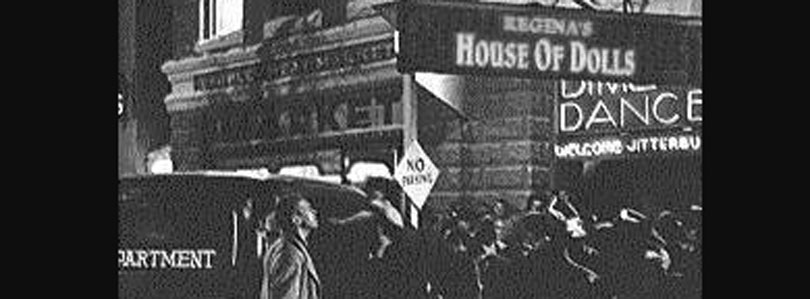Crawling to Potter
The stretch from Christmas through New Year’s Day is a whirlwind of perspective, giving us opportunities not only to evaluate our own perspective, but also to compare ours with others’. Contrast the sheer joy and excitement of children with the frazzled exhaustion of their parents. Or more, contrast those children — and their confidence and comfort that the world is filled with security, love, and hope — with lonely adults who feel their isolation even more acutely.
This post won’t go quite that deep, though, dwelling instead on a more narrow contrast in perspective that struck me while watching It’s a Wonderful Life. If I’m not mistaken, three times in that Christmas classic the script puts something close to the phrase “crawling to Potter” in different characters’ mouths. Mr. Potter, most Americans will know, is the greedy banker who spends his life taking advantage of the people of Bedford Falls for his own enrichment.
The most expansive meaning that our hero, George Bailey, finds in his life is acting as a check on Potter’s schemes. When George is still a young man with jet-setting dreams, his father defines their family business, a main-street building and loan operation, as a way for folks in their community to take ownership of their lives without having to “crawl to Potter.” Later in the film, George restates this purpose, and in the moment of his desperation, Potter himself calls George “a miserable little cur, crawling in here on your hands and knees begging for help.”
I’ve seen this movie (in bits and pieces, anyway) dozens of times, but this year, when George’s father invoked the image of crawling to Potter what came to mind was government regulation. If anything, the complaint against private lenders, these days, is that people don’t have to crawl to them for help. Debt is everywhere. Where we have to crawl — to build our homes, to engage in our occupations, to organize our lives — is government.
Curiously, government is almost entirely absent from It’s a Wonderful Life. Apart from references to the conduct of World War II, its only appearance comes in the person of the district attorney who will hold George accountable for money missing from his accounts.
Curiously, too, the movie never contemplates either the possibility that the government might work with George to resolve an honest loss of money or the possibility that he could bribe somebody in government to help him out. The movie’s government just wants the business’s books to balance, and it doesn’t appear to matter why they don’t or how they ultimately do. At the end of the movie, what saves George is the independent action of people in his community, filling the financial gap, which wouldn’t have been a solution if the government were really enforcing laws against theft and fraud, rather than acting as a sort of accounting service. Donated revenue does not undo the theft of assets.
Accepting this inaccurate vision of government for the sake of analysis, though, the absence of government in the story raises the importance of perspective. Those who look to government for solutions will see an opportunity for a check on the greedy Potter that doesn’t rely on a single George Bailey to sacrifice his dreams for principle. Those of us who take a different view will point to George Bailey, and the community’s rescue of him, as evidence that a government solution was not needed — indeed, that government intervention would have deprived George of his meaning and the community of its own opportunity to come together independently.
Even more, experience suggests that, when government steps in to do more than set a neutral playing field for private action, as it takes more and more responsibility onto itself, it does not replace George Bailey, but Mr. Potter. It takes the power of decisions out of individual hands; it then attracts people who seek that power into government office (or conspiracy with it); and it then uses government’s enhanced power to negate even the possibility of a Bailey building and loan.
Another striking omission from It’s a Wonderful Life is that Potter never uses his wealth to squeeze his sole competitor out of the market. He negotiates with a corporate board. He steals the funds that create George’s problem. But he doesn’t try to join his power with that of some local or state agency. That part of the story arguably requires more imagination to accept than the notion that a guardian angel named Clarence was able to bring George into a reality in which he’d never been born.
We can take as an observable reality that power is what forces people to crawl and that consolidating power will drive us all to our hands and knees eventually. In the face of that truth, a perspective that sees government as our best course of action to ensure a free and meaningful existence must disappear like children’s energy when the excitement that brought them through a sleepless night finally runs its course.



